Fighting the Infodemic
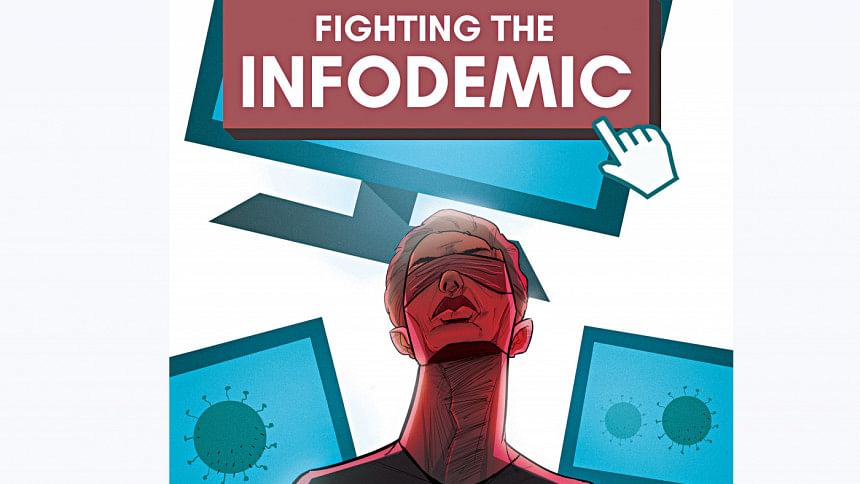
As people reading these might have already guessed, these behaviours have been influenced by information regarding the coronavirus outbreak. However, a more accurate thing to say would be misinformation or misguided ideas about the global pandemic.
The sheer amount of information regarding Covid-19 has been, is, and might well continue to be, overwhelming. Even as I write this, I got a "breaking news" about the death toll in a country surpassing a dangerously high number, all the while knowing that the death toll in another place or the same place might be even higher in a period of time as early as next week. News outlets have created new podcasts just to spread information about Covid-19; even YouTube has a link to the WHO website and a Covid-19 section on its homepage to help out in this crisis. While we live in an age where more people than ever before publish the truth, we also live in a time where more people than ever before can publish falsehoods—intentionally or unintentionally.
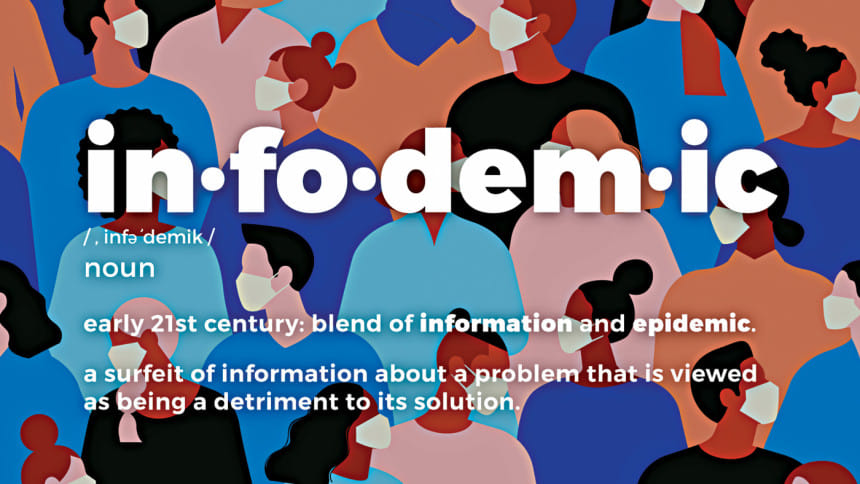
If you're not someone who believes this to be a serious issue, the severity of the problem might sink in after reading an article on United Nation's (UN) official website titled "UN tackles 'infodemic' of misinformation and cybercrime in Covid-19 crisis". According to WHO, an infodemic is "an excessive amount of information about a problem, which makes it difficult to identify a solution" and that infodemics can "hamper an effective public health response and create confusion and distrust among people."
People are worried and rightly so. Wanting to share information, especially ones that seem alarming, is understandable, especially considering the current circumstances. Unfortunately, many have been susceptible to falsehoods propagated online. In the past few weeks alone, people acting under fear or with wrong information has led to a scarcity of toilet paper, the burning of 5G towers, and xenophobic behaviour to name just a few. Moreover, just as people have been making use of technology to enhance their storytelling, so too have propagandists been making more sophisticated videos spouting false information. These come in a variety of forms, often with eerie and odd music, individuals confidently shouting out their opinions, videos of a person's silhouette on a cliff or sunset among other irrelevant images and statements designed to cause panic. Additionally, when many of these sources of falsehoods have their content removed from sites because of their harmful nature, they weave a narrative of themselves as heroes fighting against powerful corrupt forces. These narratives are compelling, even more so when many carefully mix some factual information with the lies. Some have even taken to pretending to be trusted sources. The WHO has had to publish a guide for people ("Beware of criminals pretending to be WHO") to identify scams where their name is wrongly used by people with malicious intent to trick other people.
New terms have been coming up in relation to the coronavirus, and one of them is "covidiot". The term applies to panic-buyers, people flouting public health warnings and spouting conspiracy theories, and generally anyone behaving irresponsibly in regards to the coronavirus outbreak. Reading news about less than commendable actions on the parts of both ordinary individuals and individuals with authority can make many feel the urge to use the word covidiot and far less savoury words, but here, it might be more helpful to practice constraint.
In an article in The Atlantic called "How to Talk about the Coronavirus", science communicator Liz Neeley writes, "Identity threats trigger identity-protective behaviours such as motivated reasoning." More importantly, the information people have and believe also depends—as almost everything does—on the privilege that a person has or does not have. An article in The Daily Star on April 24 says that "Nearly half of the lower-income group living in coastal areas do not have any idea about the Covid-19 virus". In many instances, people lack information through no fault of their own. Moreover, even when people do have access to information explaining complex situations or countering false information, it may be in a language a person is not proficient in.
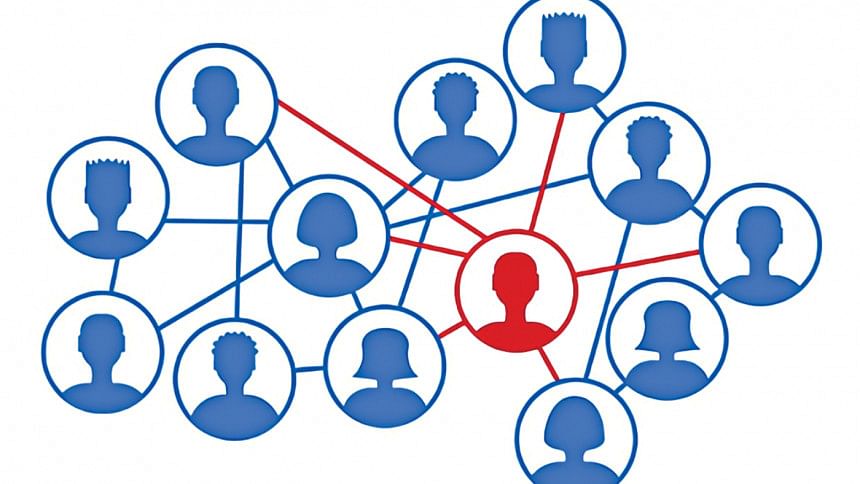
The situation we're in is an unprecedented one, and so even when we've done our parts to ensure the information we're sharing is correct, we have to pay attention to how we word things. Words have connotations, and can alter how a person reacts to a piece of information. As political commentator and late night show host John Oliver rightly points out, using words with negative connotations like "swarm" can make even kittens seem scary.
Another Vox article explores the problems that arise when war metaphors are used when discussing Covid-19 such as shifting our attention away from the provision of care and support and putting shame on people who've gotten the disease. We've even seen public officials making statements that have misguided the public in many ways. One of the most prominent examples of one of these statements was its comparison with the flu. Fortunately, news outlets and sites such as Vox have content explaining the differences. Trustworthy newspapers and media outlets have been putting in effort to help people navigate the sea of information better. For those looking for a guide on how to distinguish between correct information and misinformation about the coronavirus, an article in The Guardian titled "Coronavirus overload: five ways to fight misinformation and fear" might be very helpful.
Another aspect we have to pay special attention to when dealing with Covid-19 is scientific knowledge. We must remember that discoveries in science come to us after a lengthy process that requires peer reviews and several other factors taken into consideration. In The Guardian article previously mentioned, one of the recommendations is to "be wary of preliminary scientific findings". Additionally, even when looking at data or charts that has been created by scientists and checked by other scientists, we should be aware of the fact how an ordinary person interprets the data and how a person trained in science interprets the data can be vastly different.
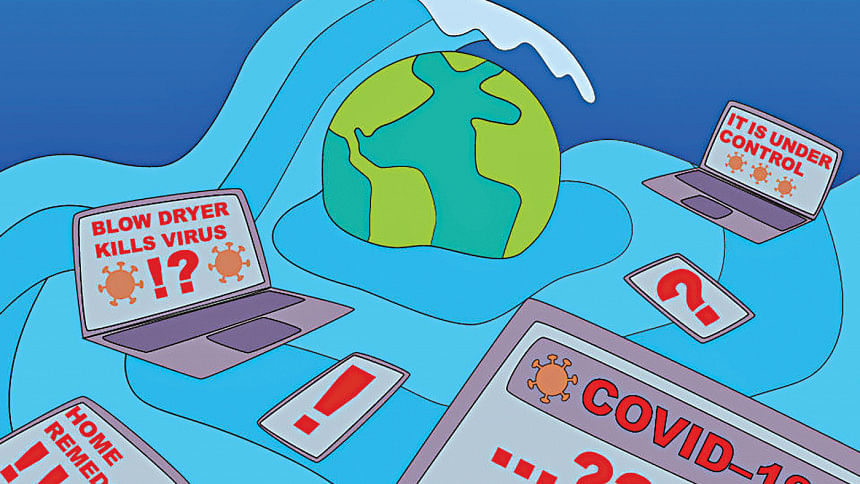
To give an example, consider the video on Vox's channel "Coronavirus is not the flu. It's worse". It talks about the basic reproduction number or R0 which is a unit by scientists to describe how contagious a disease is. The video shows that in comparison to highly contagious diseases like the Zika virus and measles, the flu and Covid-19 with their comparatively lower R0 numbers of 1.3 and 2-2.5 respectively, not only seem less dangerous but also make the two diseases seem similar to each other. In addition, some of the symptoms between both diseases are similar. However, the video quickly highlights how much more dangerous Covid-19 is than the flu with a diagram showing the number of people affected after ten rounds—the number of people getting infected with Covid-19 is significantly higher.
This and various other pieces of work by reputable sites and newspapers show us that caution and patience is key. Even scientists are learning along the way about the coronavirus, and expecting concrete information, advice and cure for a new strain in a short amount of time is unreasonable. For those of us who do not have the specialised knowledge and skills to help out, the least we can do is not partake in spreading false information that can have negative consequences in the lives of those who follow the information you've shared.
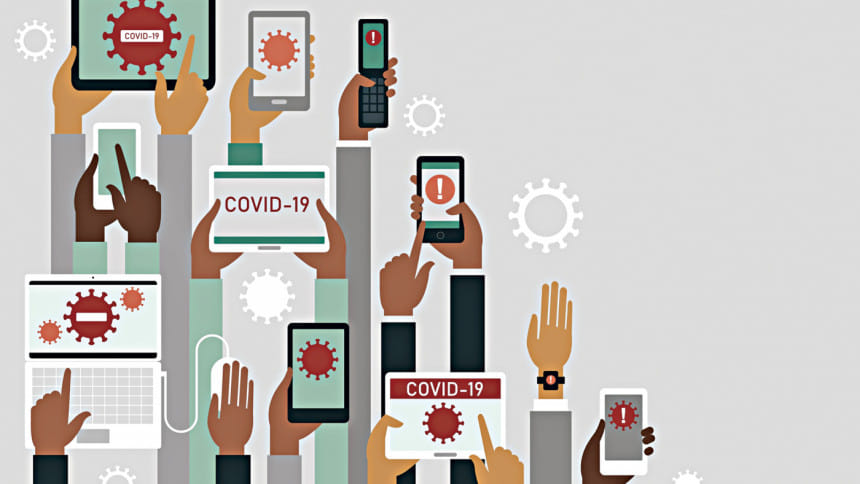
At a time when we are having to halt our daily activities to stop the spread of a disease, being extra cautious about sharing and discussing information, especially about an issue that has drastically changed all our lives, might seem frustrating. But it is our duty to do so.
In this crisis, what you don't do is extremely important.
Aliza is Matilda resurrected. Reach her at [email protected]

 For all latest news, follow The Daily Star's Google News channel.
For all latest news, follow The Daily Star's Google News channel. 








Comments